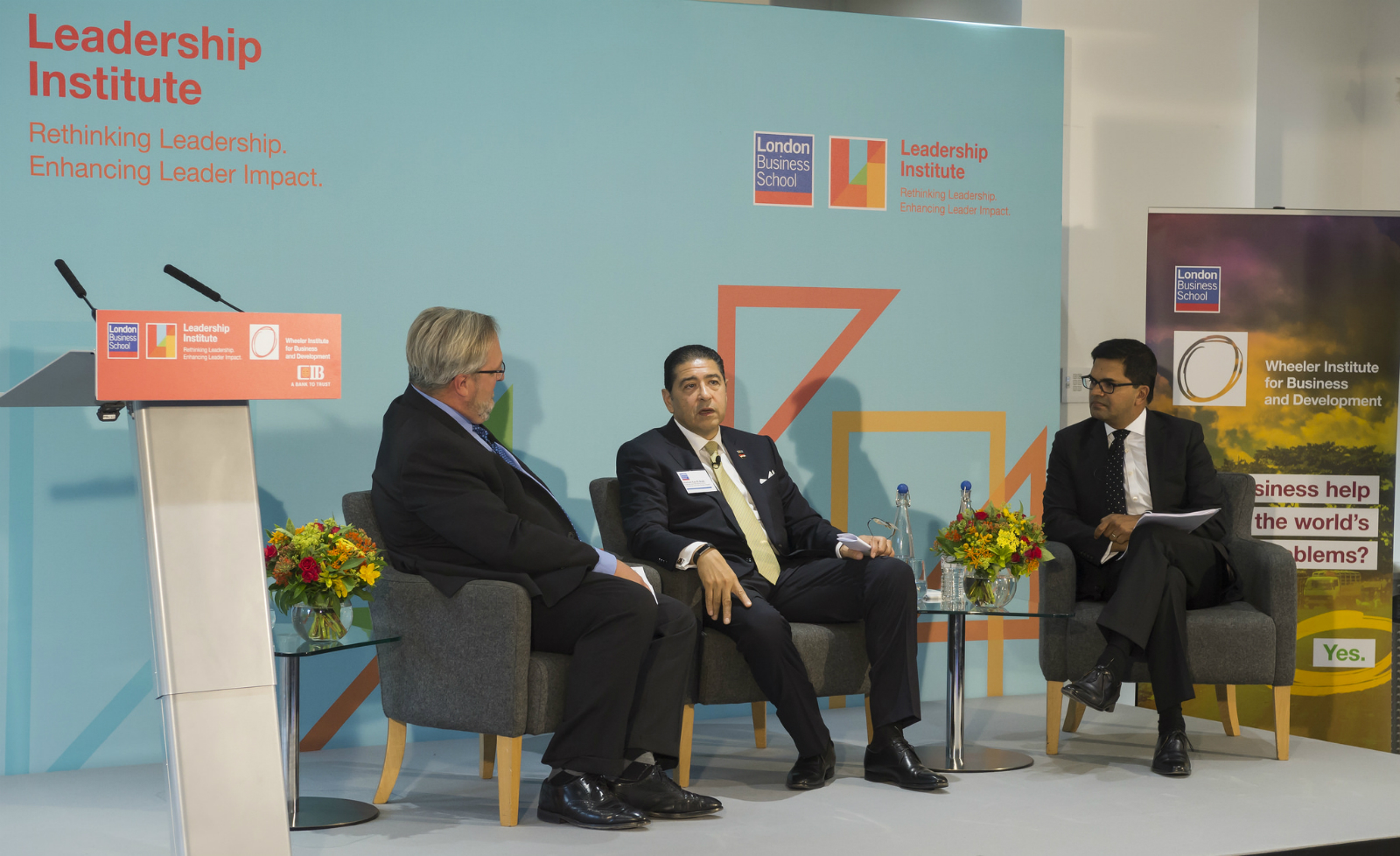CIB becomes the first ME company to feature in London Business School case study

CIB is the first Mideast corporation to feature in a London Business School case study: Our good friends and sponsors at CIB have become the first Middle East corporation to feature in a case study by the London Business School. To mark the occasion, CIB Chairman Hisham Al Arab recently gave a talk on the future of finance and leadership in turbulent times to a London Business School audience at a joint event with LBS’s Leadership Institute and the Wheeler Institute for Business.
EMs have an innovation advantage: “Emerging markets are more innovative, because they are less regulated compared with the developed world. Look at the European market after the financial crash of 2008. Overregulation almost prohibited banks from lending money. As the market becomes less regulated, innovation will thrive,” Ezz Al Arab said.
The winning formula that could propel EM finance forward? It’s as easy as ABCD: A for artificial intelligence, B for blockchain, C for the cloud and D for data. “Those combined, honestly with a little deregulation, will be the real revolution in the financial services industry,” said Ezz Al Arab.
Walking the walk: Ezz Al Arab then spoke on how CIB adapted to the chaotic events of 2011 by investing further in Egypt. “We have taken transformational steps over the past years, moving from traditional banking to a service provider that fits with the requirements of the newer generation. Technology will play a critical role — it will pave the road for innovation,” said Ezz Al Arab. These steps include setting up a data hub outside the bank’s Cairo headquarters to provide cutting edge services. The choice to invest in tough times paid off, culminating in the bank being named the World’s Best Bank in the Emerging Markets by Euromoney.
Challenges facing Egypt’s finance sector are its biggest opportunity: High among the challenges named by Ezz Al Arab is a fragmented customer base. “People have savings with the post office, some people use cash, some have credit with microfinance — but to consolidate, this is the opportunity.” For example, Egypt’s low banking penetration and the high percentage of mobile phone users opened the door for the bank to push for a cashless society through e-payments using e-wallets and other mobile banking services.